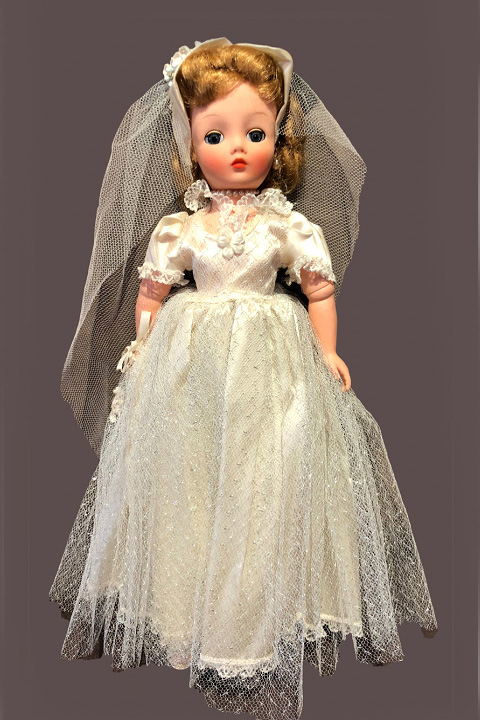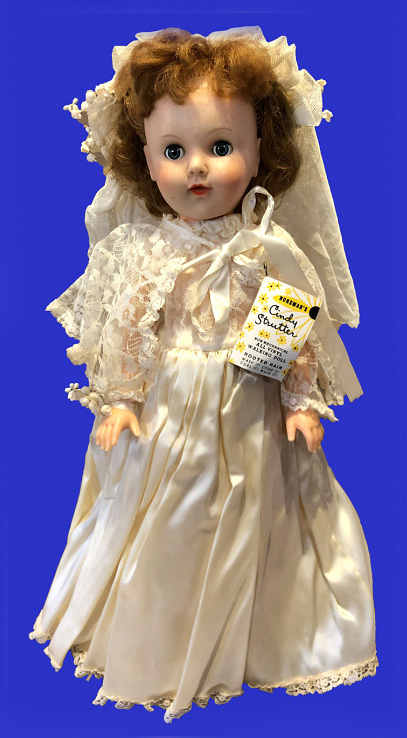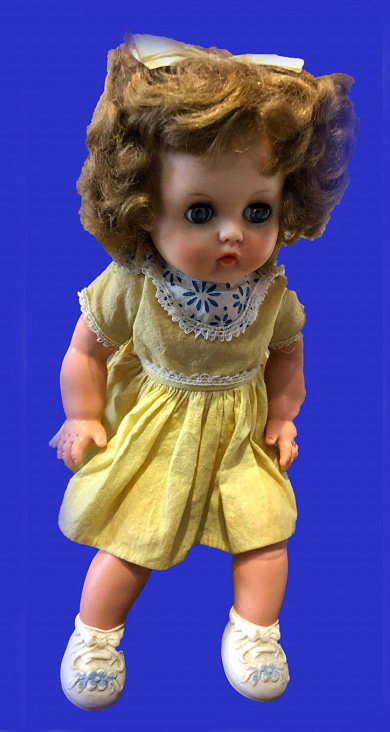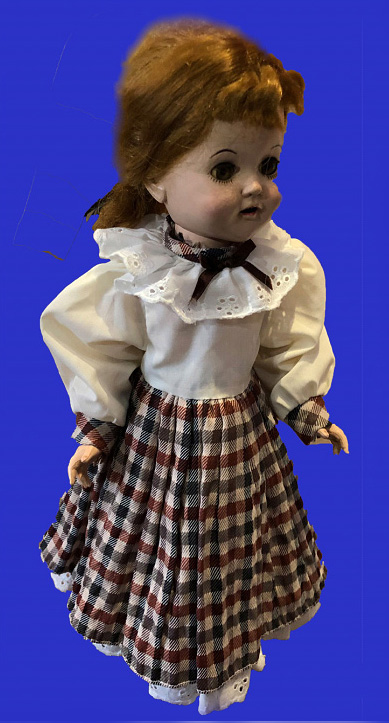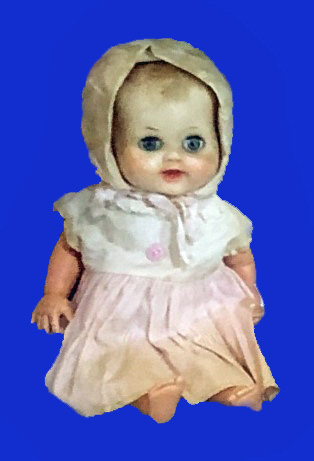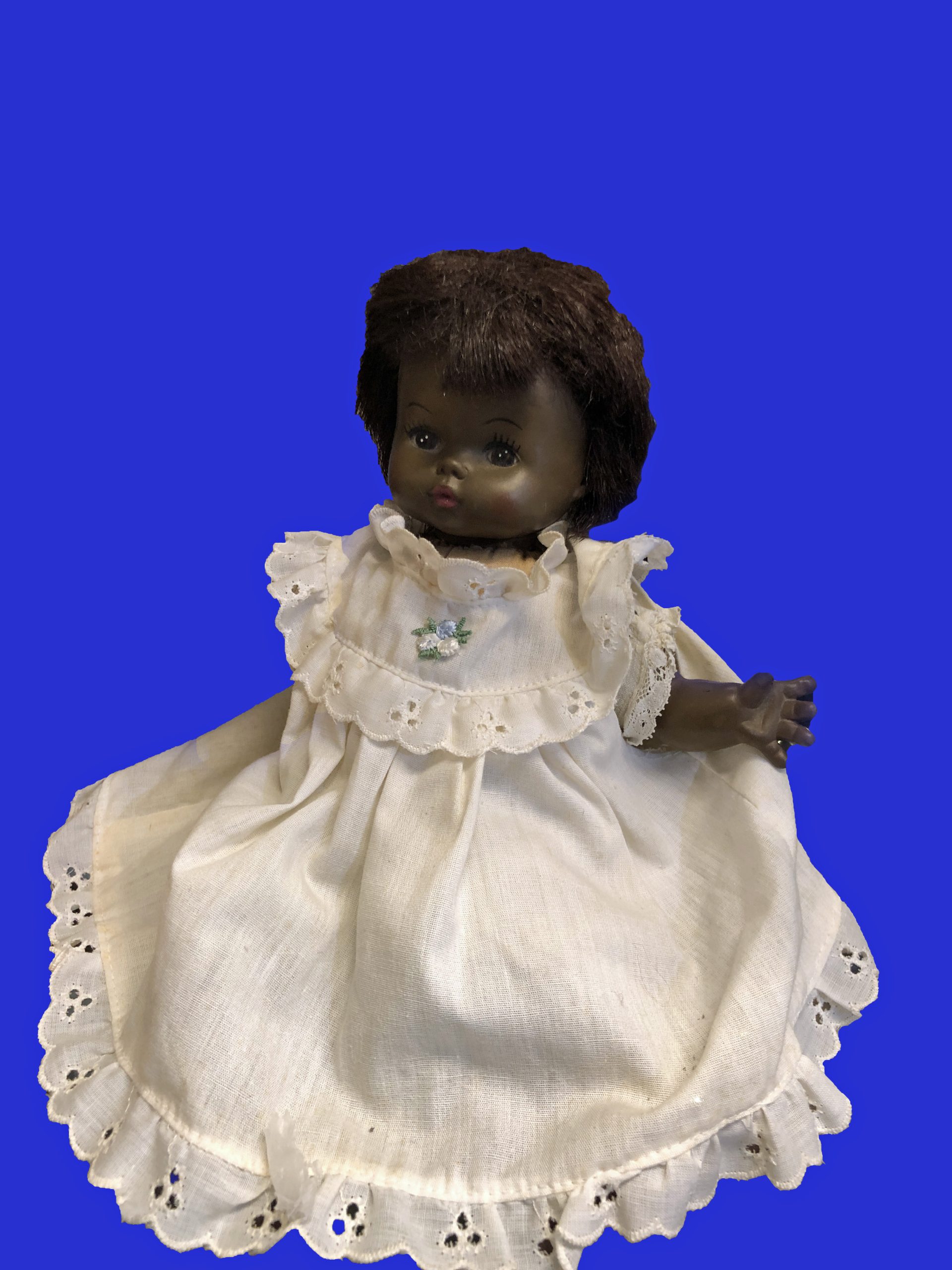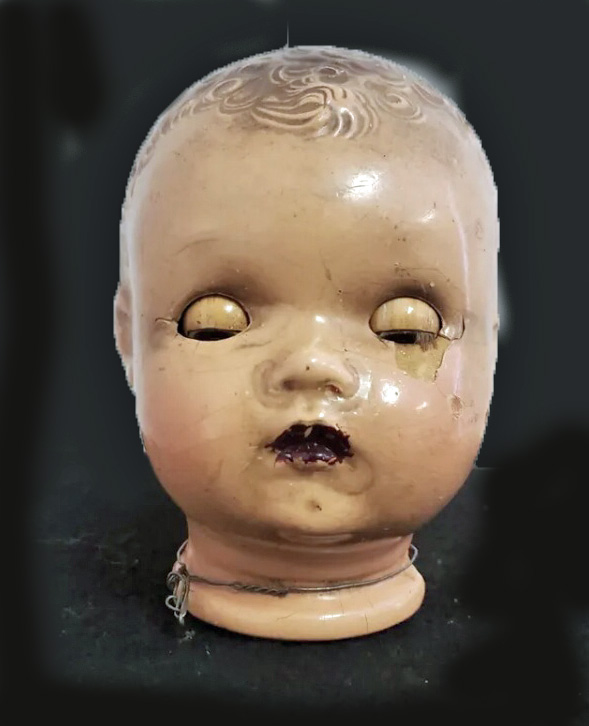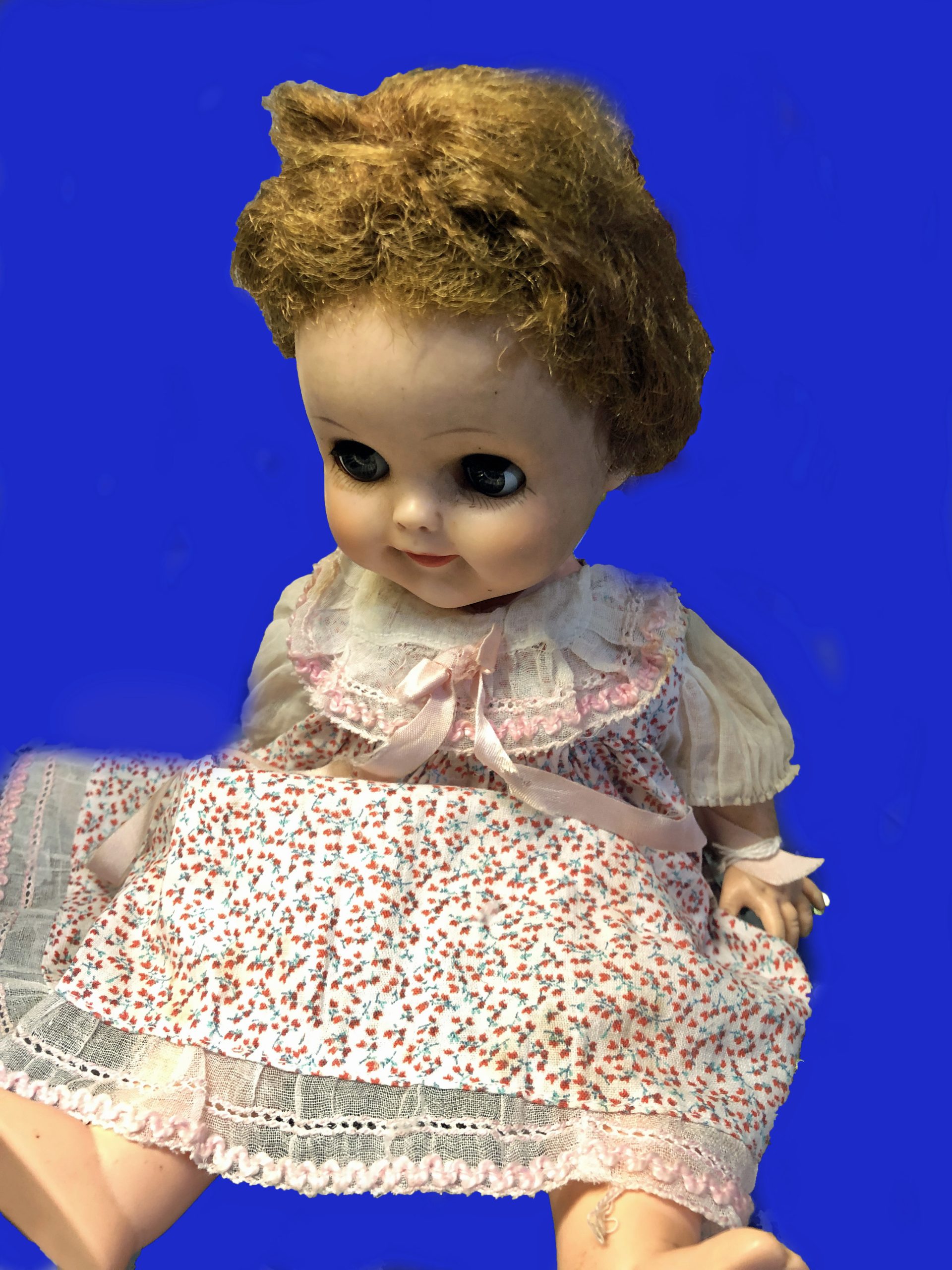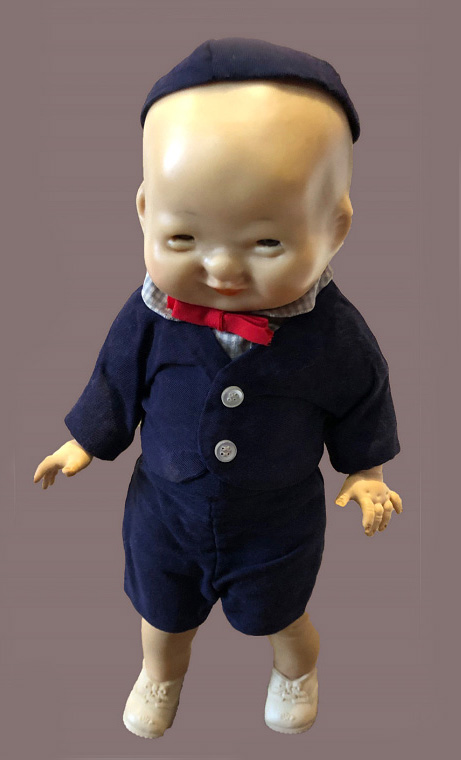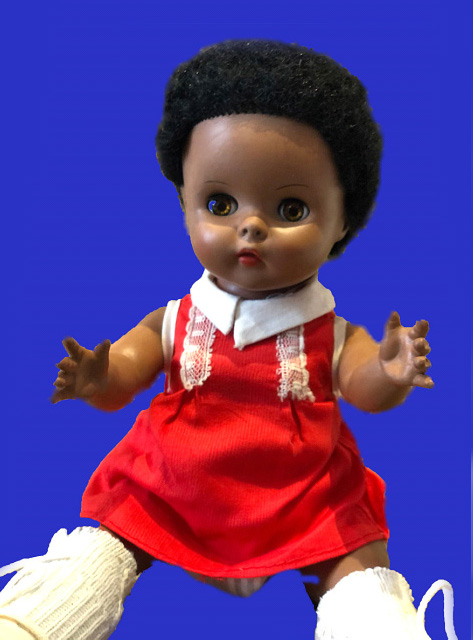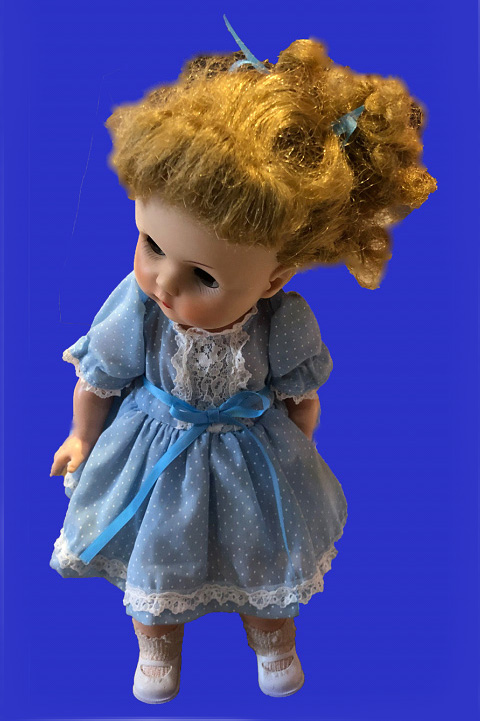Horsman Dolls – Trenton Made
November 17 through January 21
Curated by Karl J. Flesch & Deborah Gorczycki
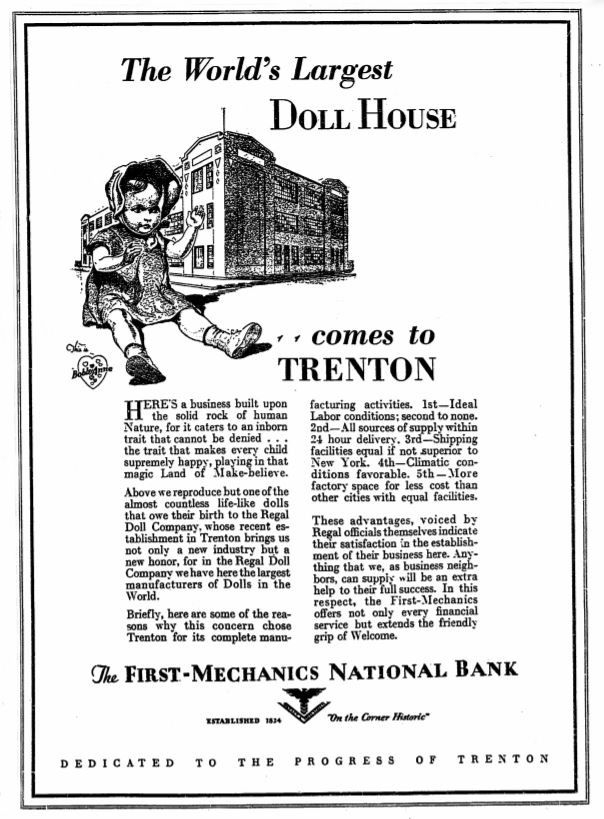
Edward Imeson Horsman (E. I. Horsman) (1843-1927) opened a toy company in New York City, New York in 1865 and became a leader in the toy industry. In the early years Horsman imported dolls from outside the USA, and starting in 1904 they distributed “Babyland Rag Dolls” made of all cloth.
From 1909 the toy firm used a new production process to make the ‘Can’t break Em’ dolls. Horsman created a magic medium that could be molded and detailed but would not break. This medium was called “composition” which was made from melted glue, glycerin, zinc oxide, and wood shavings. These doll heads were meant to compete with the huge German market of imported bisque dolls that were easily broken.
E. I. Horsman retires in the early years of the 20th century and turns the company over to his son, but Edward, Jr. (1873-1918), died suddenly at 45 and E.I. returned to the business. Then E. I. Horsman died in 1927 and the previously greatly successful company fell into serious financial trouble.
In October 1933 the nearly bankrupt Horsman Company was purchased and became a subsidiary of the Regal Doll Manufacturing Company.
At the end of 1930, the Regal Doll Manufacturing Company purchased the former Taubel Hosiery Mill in Trenton from F. A. Straus & Strauss for around $250,000. The plant, containing 82,500 square feet was bounded by Adeline Street, Chestnut Avenue, Elm and Grand Streets.
The plant would employ 400 workers and at peak production times, 800. In addition, several hundred women will be given be given part-time work in their homes dressing dolls.
Architect Louis S. Kaplan was hired to design an addition that would connect the two large structures on the property. Harry Freedman, president of the company stated that the company hoped that within two years the present plant would double in size.
The Horsman line of dolls were the superior brand, thus by late1937 the Regal name disappeared and by 1940, only the Horsman dolls and company name remained. In 1950 the last composition doll was made, called Bright Star. The dolls that followed were made of hard plastic. Then in the 1950’s soft vinyl was introduced by Horsman that allowed for rooted hair instead of wigs. Since the 50’s Horsman had set the pace in the market by producing quality dolls at popular prices.
Then along came the imports, higher wages and benefits demanded by unions, and the viable little factory began to tremble, then fall.
In December 1952, Horsman is the only large doll manufacturing enterprise which was located outside of the greater New York area. Owner Harry Freedman & the board of directors decides to close the factory because from a labor standpoint it was not able to compete with the New York market.
The company had spent several hundred thousand dollars to conveyorize and modernize its operations, but no lowering of piece work prices were permitted so that many workers wages increased in the last few years as much as 100 to 200 percent. The large outlays of capital for equipment did not result in any savings for the company. There was no possible way for Horsman operating in Trenton to compete with dolls made in the New York area.
During January 1953, negotiations were held for a rewriting of the contract with Local 225, CIO Novelty Workers Union for about 1,200 employees, mostly women. Agreement was reached to reopen the plant on March 1, 1952. The pact provided for a modification of piecework rates.
In March 1957, Botany Millis, Inc. buys Horsman Dolls. Botany is primarily an apparel and woolens maker that has been expanding into other fields in recent years. Botany agreed to pay off the purchase price over several years and if at any point during that period the buyer defaulted on the payments, Botany would forfeit all the money it had paid up to that time and the company would revert back to the sellers Harry Freedman and his partner Larry Lipson.
In March, 1960, Horsman announces that it is expected to close in six months and will look for another plant in New York. It was explained that the average wage rates in the Trenton area have been rising since steel production and other heavy industry operations began expansion. These require highly skilled and trained employees, which leads to a raised wage level in the community.
A more favorable labor market in the New York area was said to exist for such seasonal businesses as Horsman in which many workers are women in position to accept less than full time jobs.
In May, 1960, the 1,000 union employees at the Horsman Dolls plant proposed to invest up to $1,000,000 in purchasing the establishment from its owners to keep their jobs. The company was planning to close the plant on July 1, 1960 and lease a new plant in Columbia, South Carolina.
Sometime in the early ’60s, Botany had decided that it had over-expanded and over-diversified and had to divest of several smaller acquisitions and. After paying off nearly the entire purchase price for Horsman, Botany backed out of the sale and the Freedman’s and the Lipson’s get the company back.
In 1980 Drew Industries acquires Horsman Dolls, Inc. for $6.5 million. When the purchase was concluded, Horsman Dolls became Drew Dolls, under which name it produced dolls for a few more years, and then Drew Industries liquidated the company and Horsman Dolls, one of the last companies to manufacture dolls in the United States and never made them abroad, passed out of existence.
In 1986 the Horsman name was sold to an Asian company; Gata – Gatabox, LTD of Hong Kong, which produced dolls, including reproductions of Horsman classics, under the name Horsman, Limited. The new company has no connection to the original E. I. Horsman company, Gata just bought the name.
That company dissolved in 2002 but was succeeded by a new corporation known as Horsman, Limited, headquartered in Great Neck, New York, on Long Island and it continues to market dolls, but they’re made in Hong Kong.
That company dissolved in 2002 but was succeeded by a new corporation known as Horsman, Limited, headquartered in Great Neck, New York. Today Horsman LTD is based in Redwood City, California. It is a web company as well as an agent company for companies in the U.S. that need overseas production sourcing.
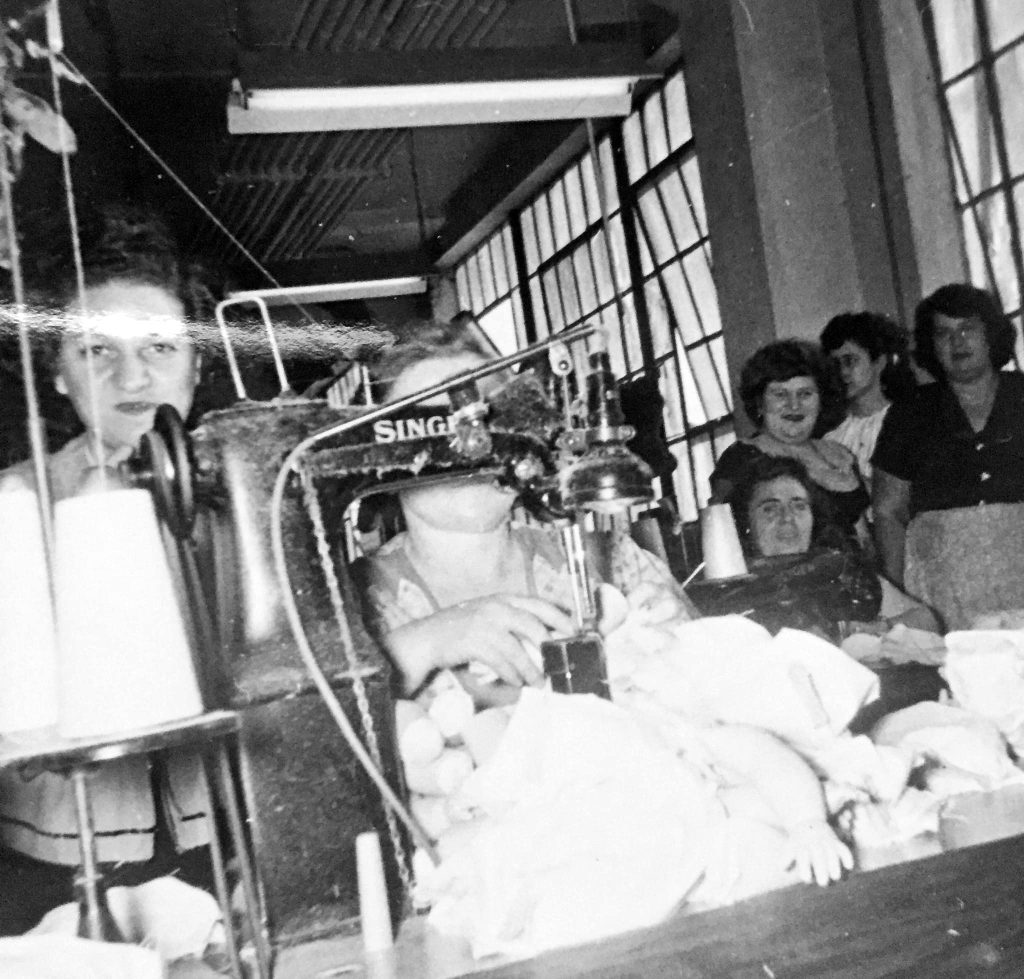
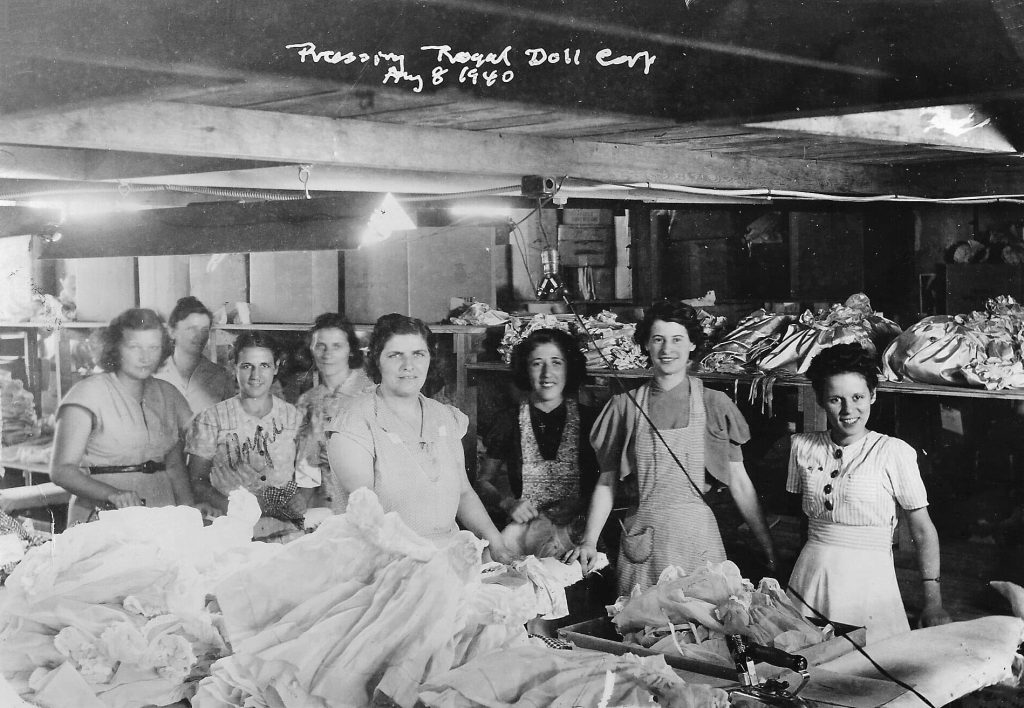
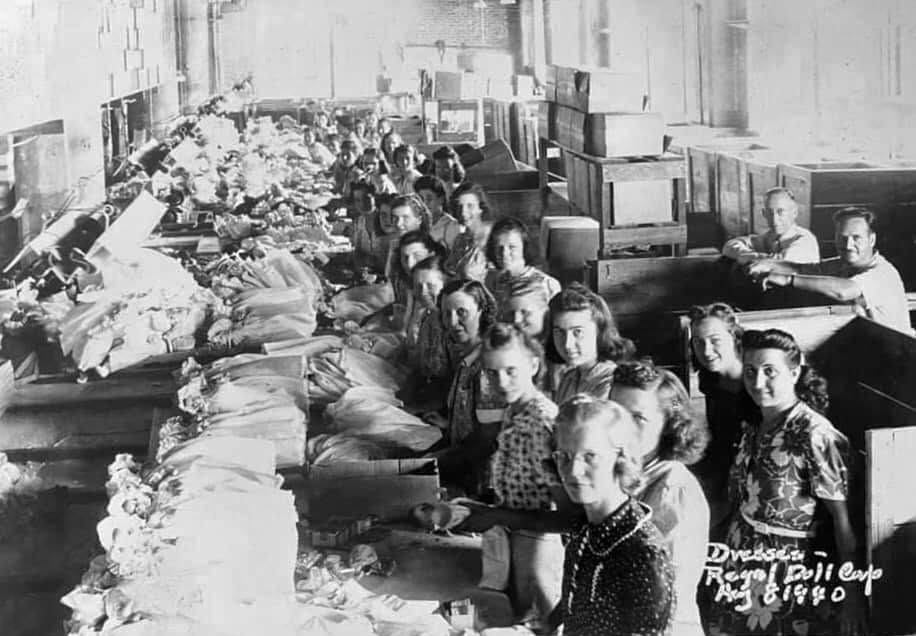
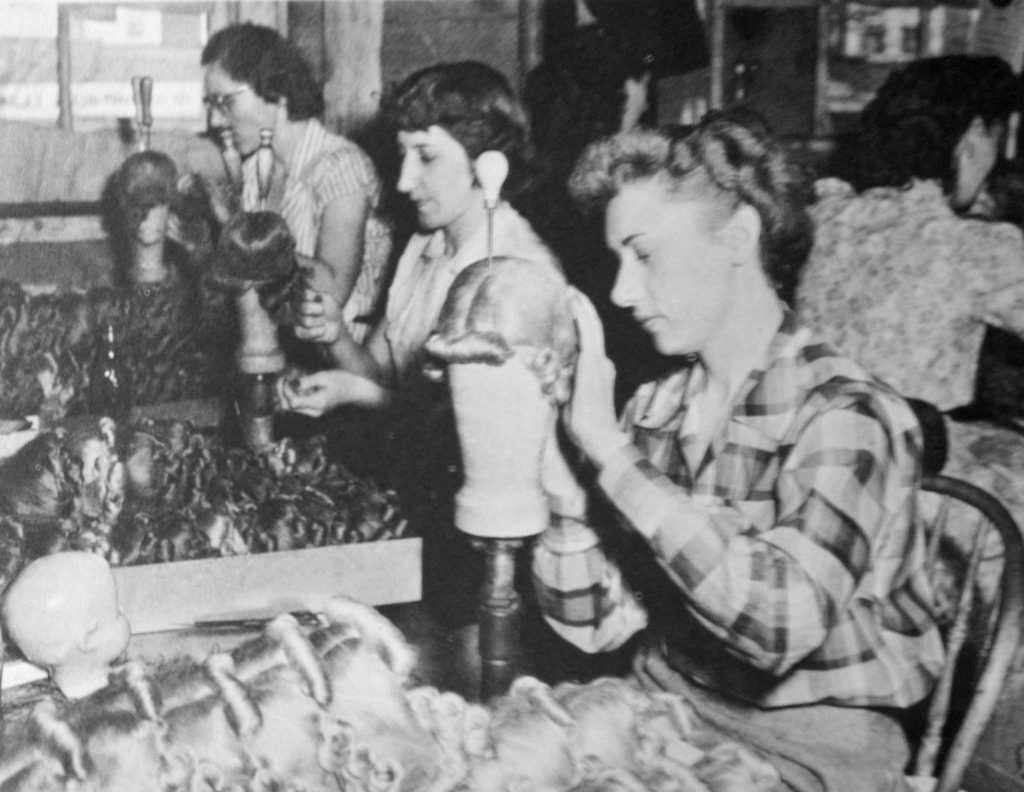

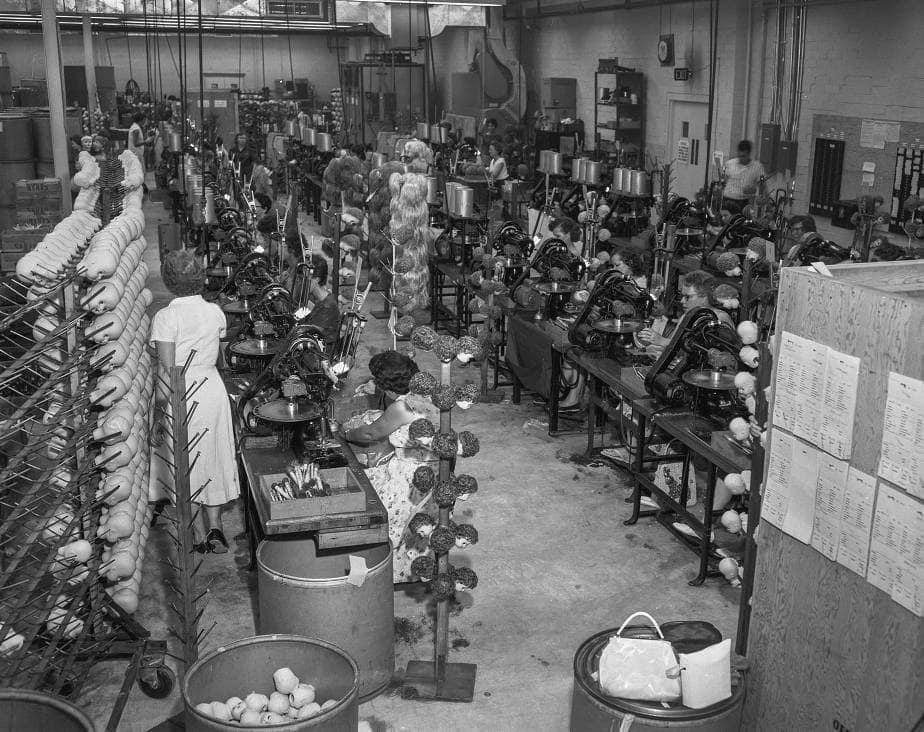
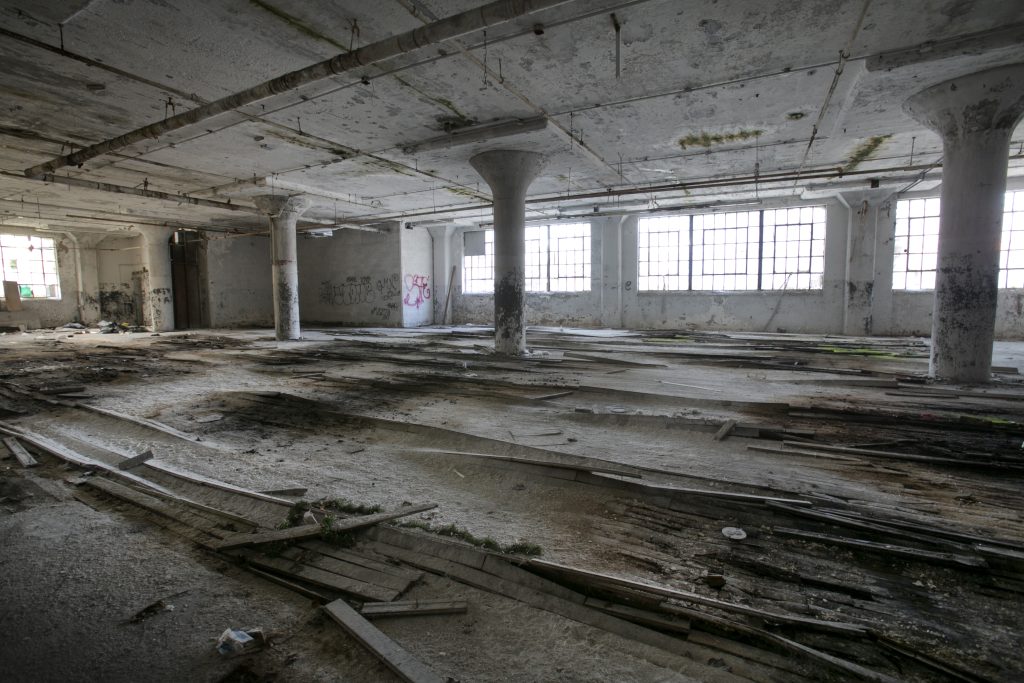


Click here for a “Moment in Time” Video on The Horsman Doll Factory
“Dolls were just one among many items produced here during Trenton’s industrial heyday.“
Harry Freedman Made Dolls for a Living
Imagine 12,000 Dolls Under a Single Roof and You’ve Got an Idea of Horsman’s Plant




